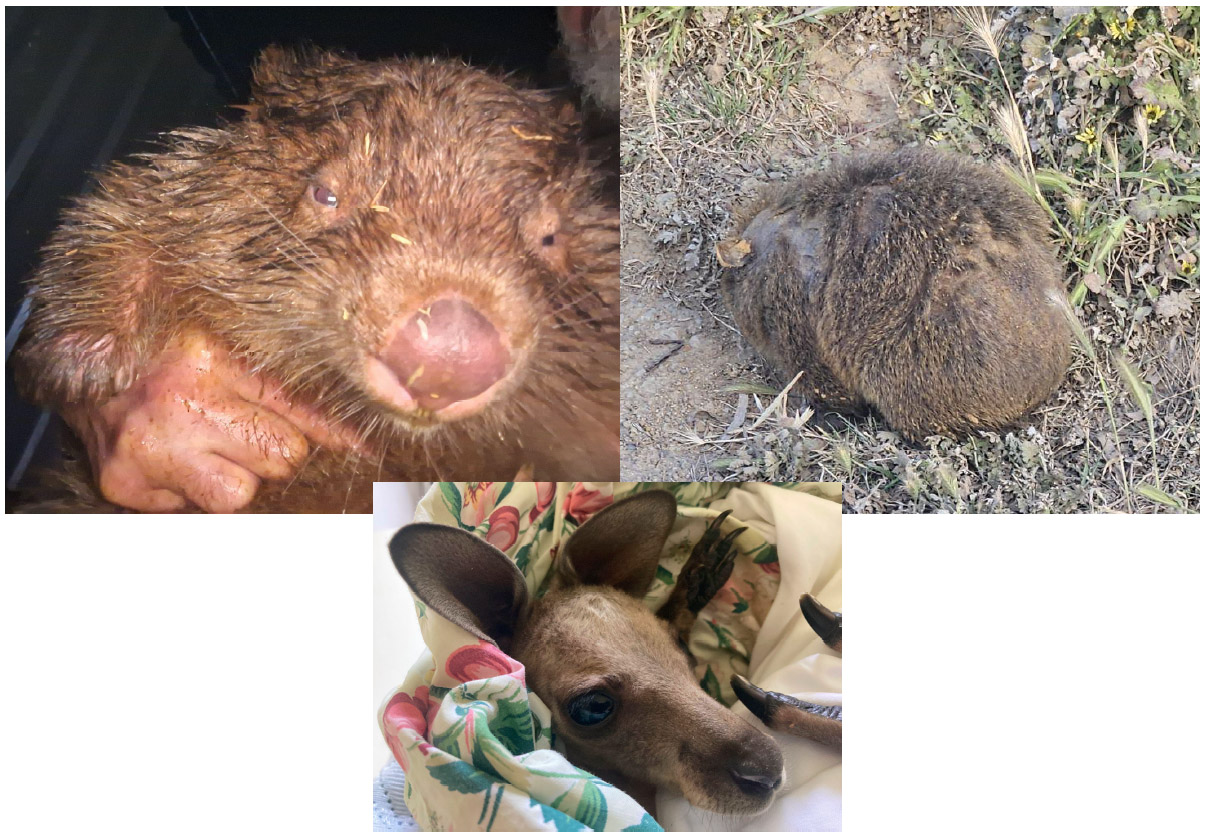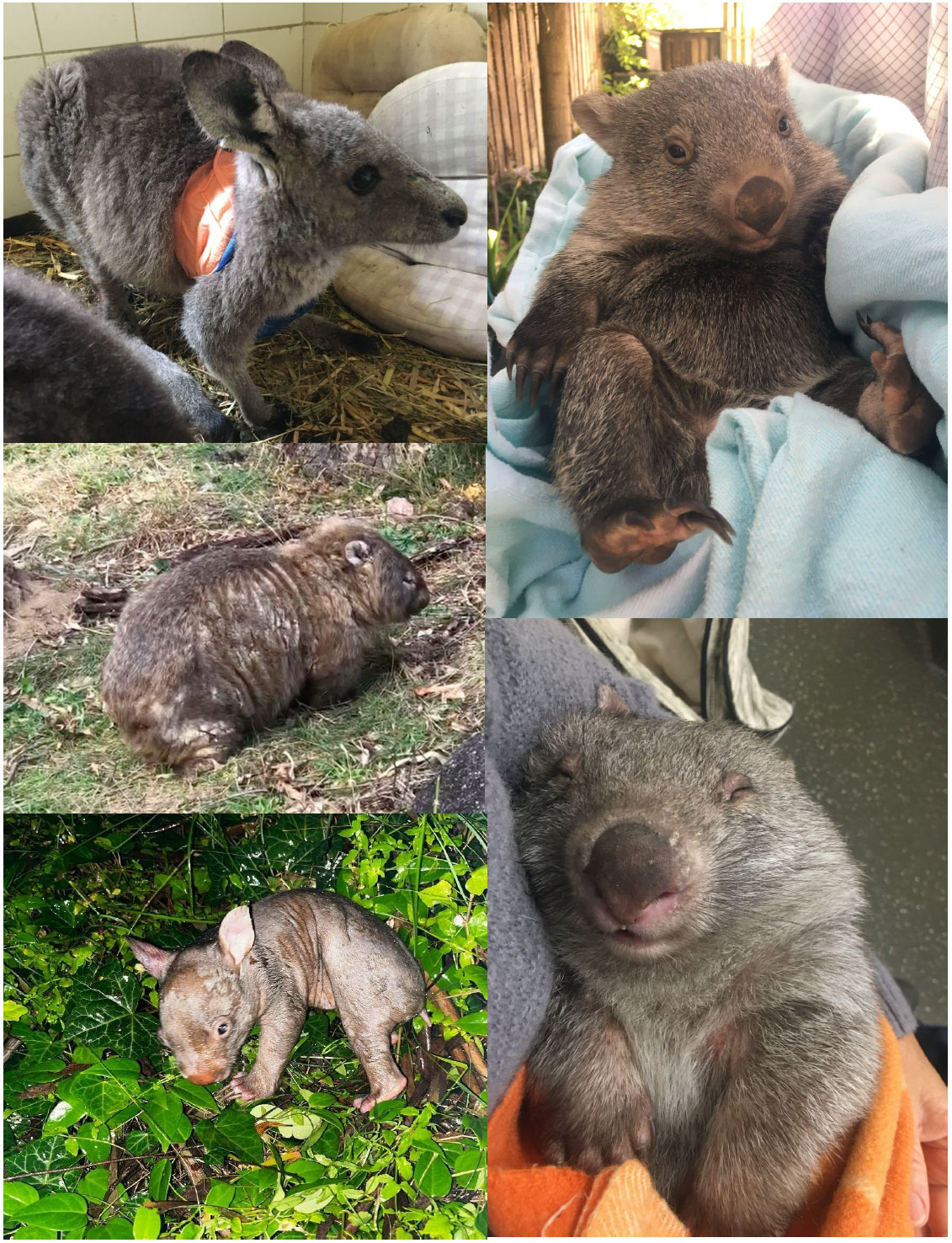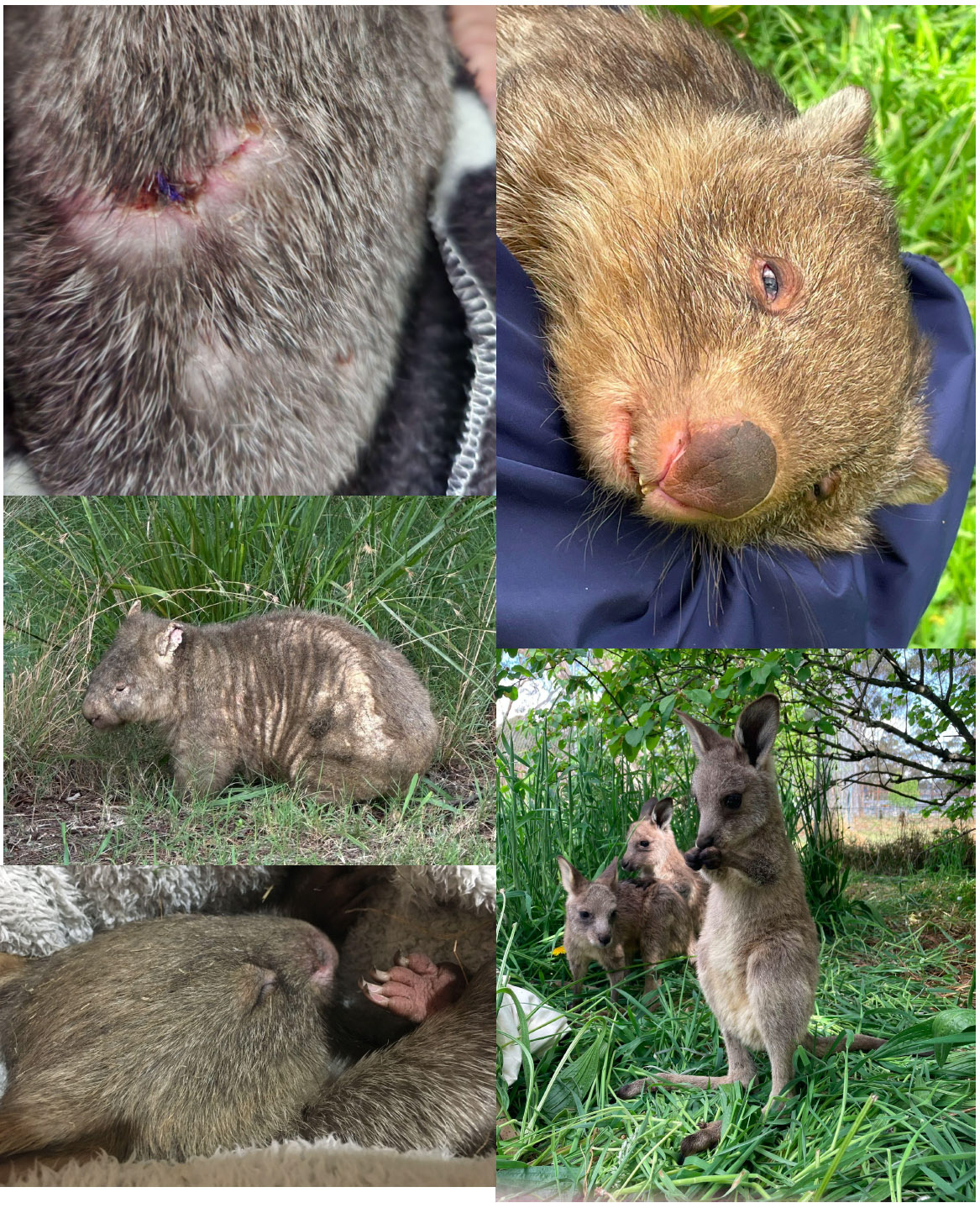Trisoprim for Wildlife
Each year, we oversee the care of hundreds of wombats and kangaroos. Cydectin is used to treat many implications wildlife may have but does not treat bacterial infections or coccidiosis. According to the Wombat Protection Society, coccidiosis has recently become much more prevalent and widespread throughout New South Wales. The predisposing factors of coccidiosis are a damp, warm and intensive environment. Due to the increasing temperatures and rainfall currently in NSW the environment is easily heavily contaminated.
In cases where Cydectin proves inadequate in the treatment of the whole animal, additional treatment with Trisoprim is necessary in order to prevent mortality. The animals shown below received Trisoprim treatment within the past year following Cydectin’s lack of efficacy. Given the failure of Cydectin, coccidiosis or another bacterial infection was suspected as the underlying cause. Coccidiosis in wombats is being cited as a widespread and relatively new phenomena, eventuating in a lack of effective treatments. After initiating Trisoprim therapy, both wombats and kangaroos responded well and demonstrated a positive response.
Most wombats show a positive response to Cydectin due to its effectiveness against intestinal parasites. However, approximately 30% of individuals now require adjunctive treatment with Trisoprim for optimal management and health results. Kangaroos and wombats have many similarities but the health treatment and management have stark contrasts. An example of this is the drug Baycox. It is used to treat coccidiosis in kangaroos, administered biweekly, can not
be administered to wombats as it can kill them. This proves the complex nature of wildlife care, however as seen in the photos below, it is proven that Trisoprim is extremely beneficial to both wombats and kangaroos.



